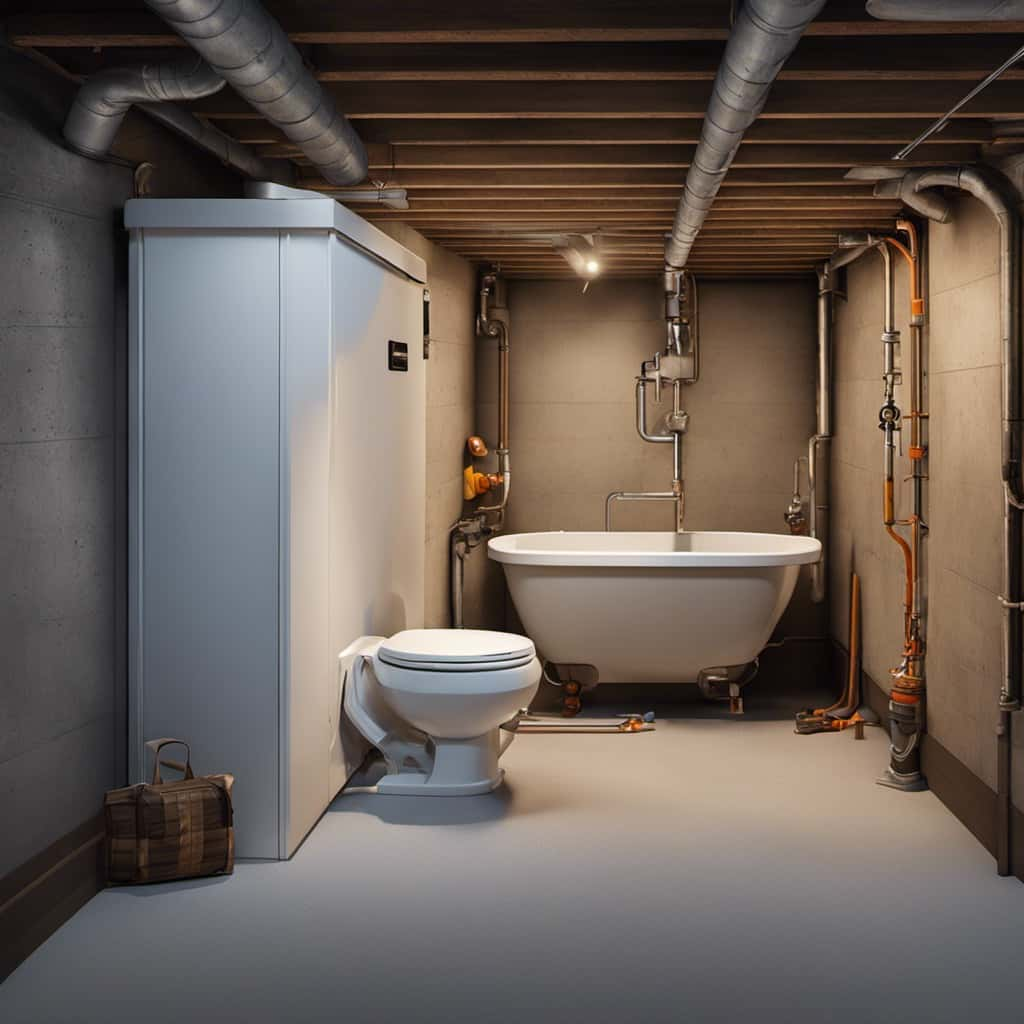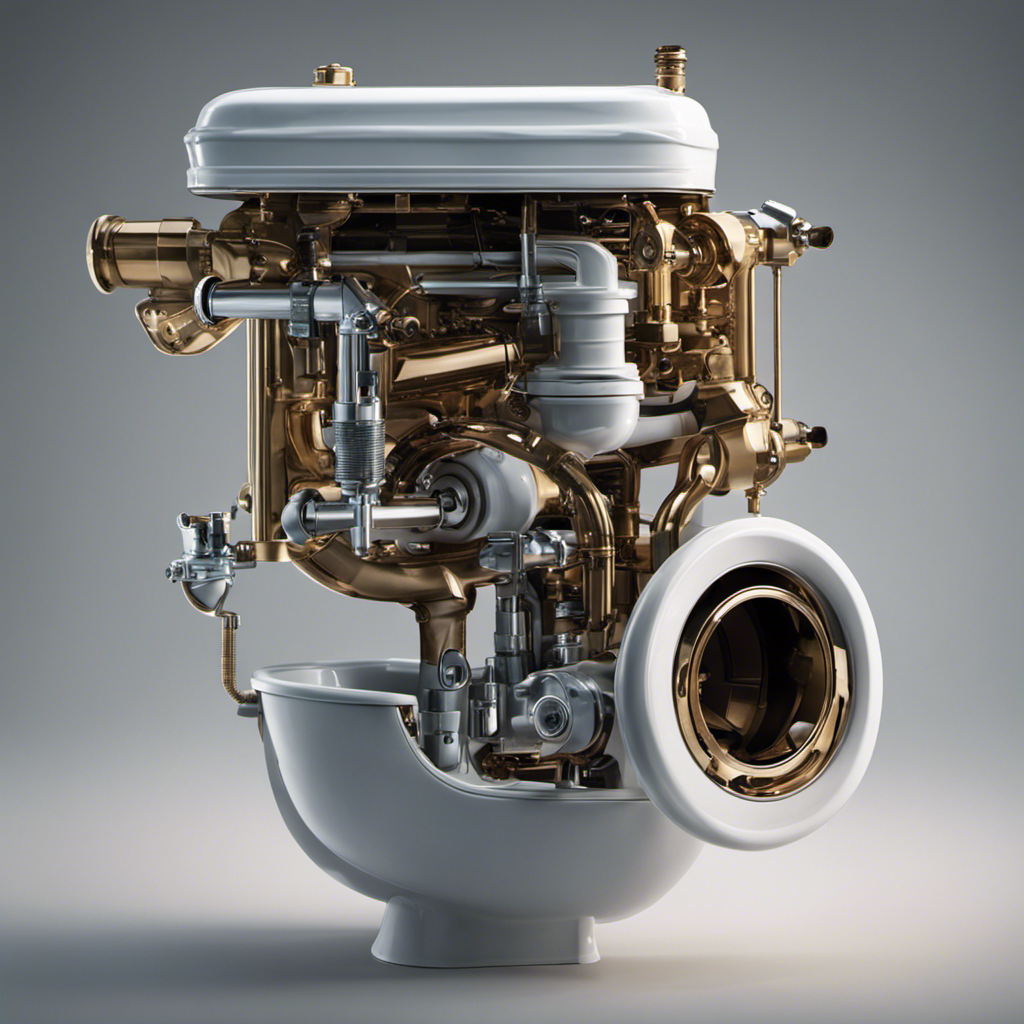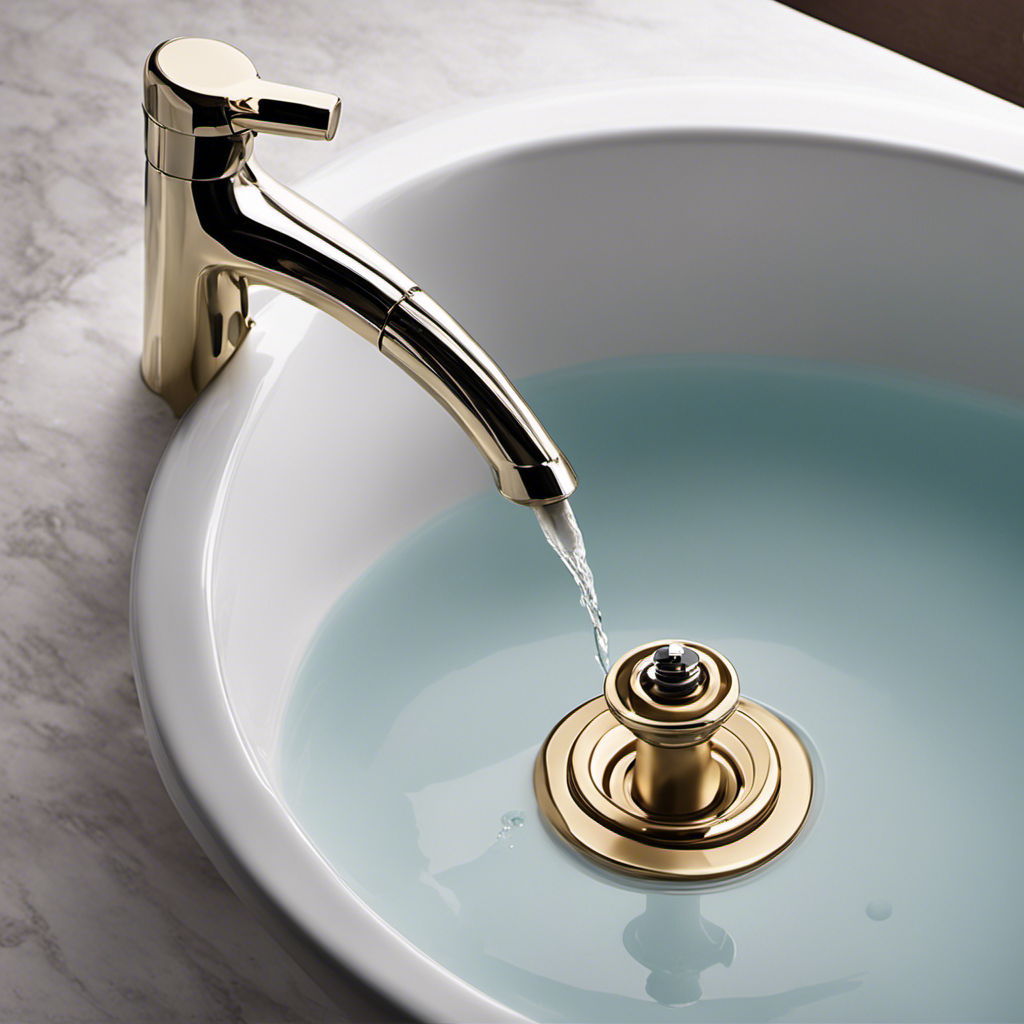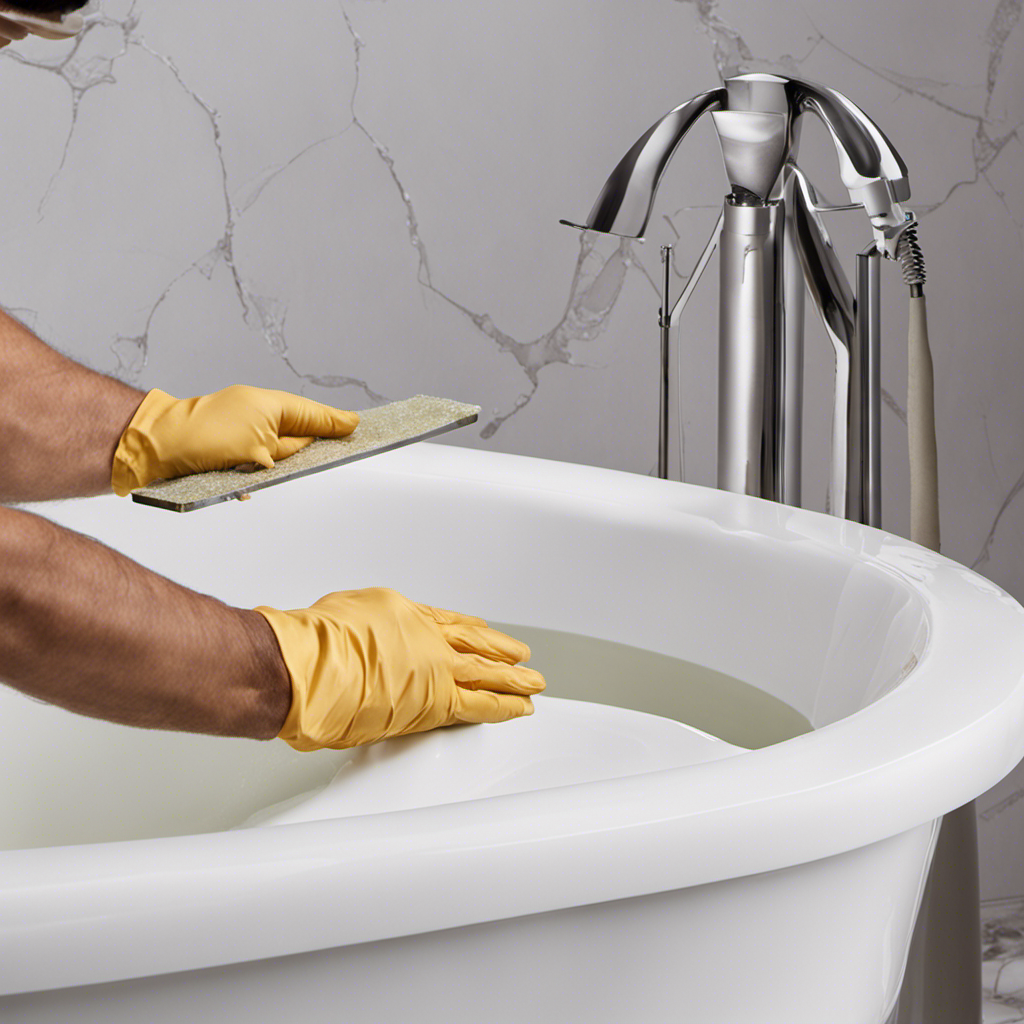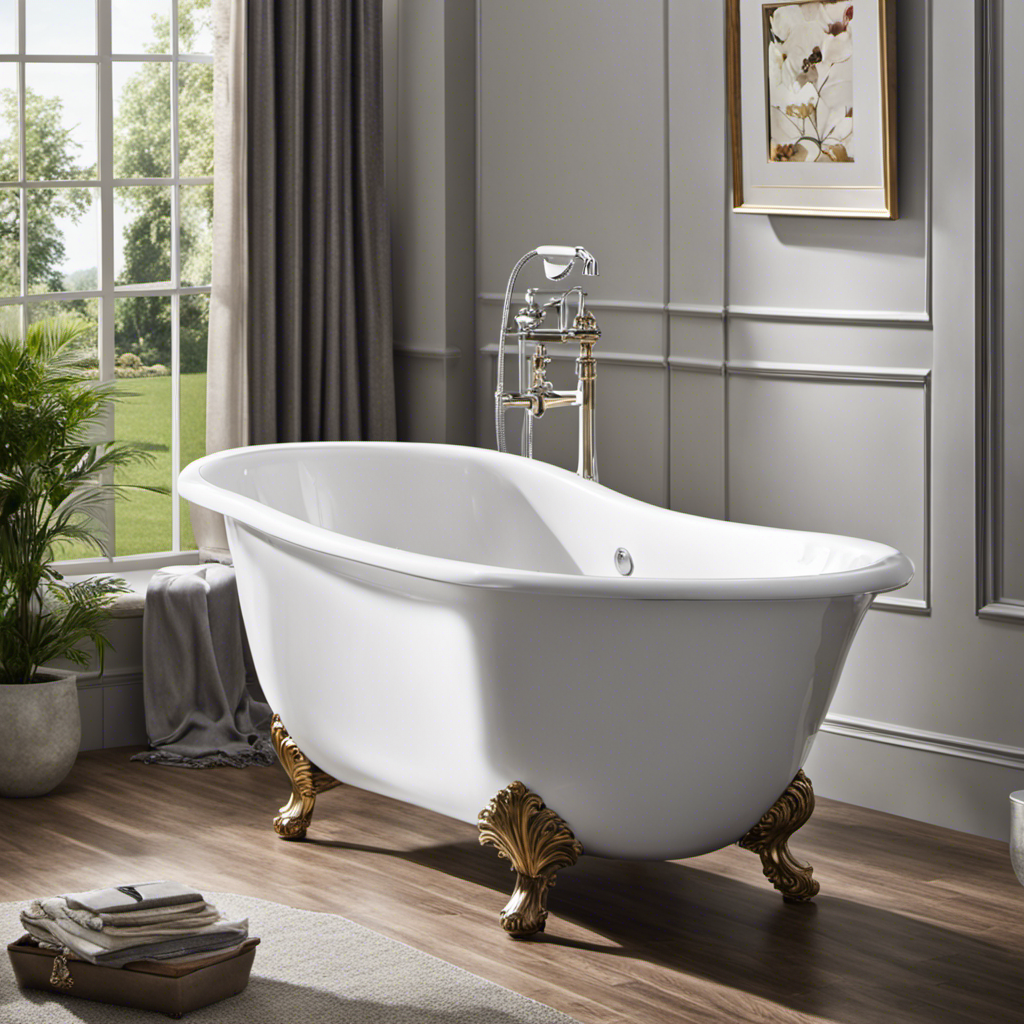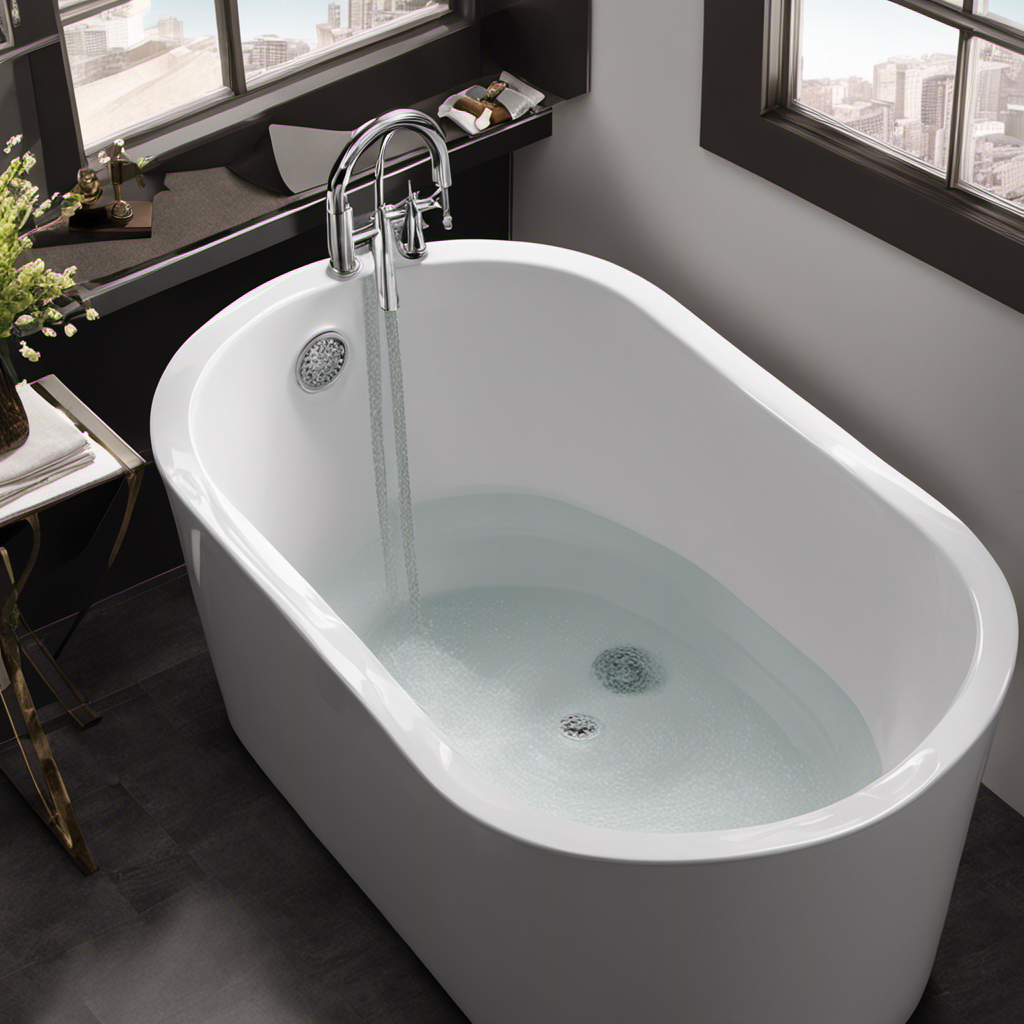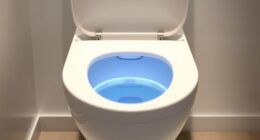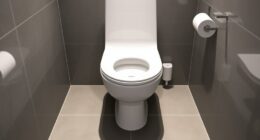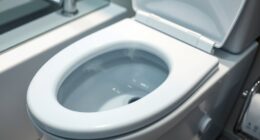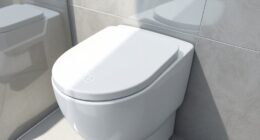We’ve all been there – standing in front of the toilet, wondering whether or not it’s safe to flush those so-called ‘flushable’ wipes.
Well, let’s dive into the truth behind this common dilemma. In this article, we’ll explore the composition of flushable wipes, decode their labeling, discuss the impact on plumbing systems, and highlight the environmental concerns.
We’ll even provide you with some alternatives to flushing.
Get ready to master the art of flushing responsibly!
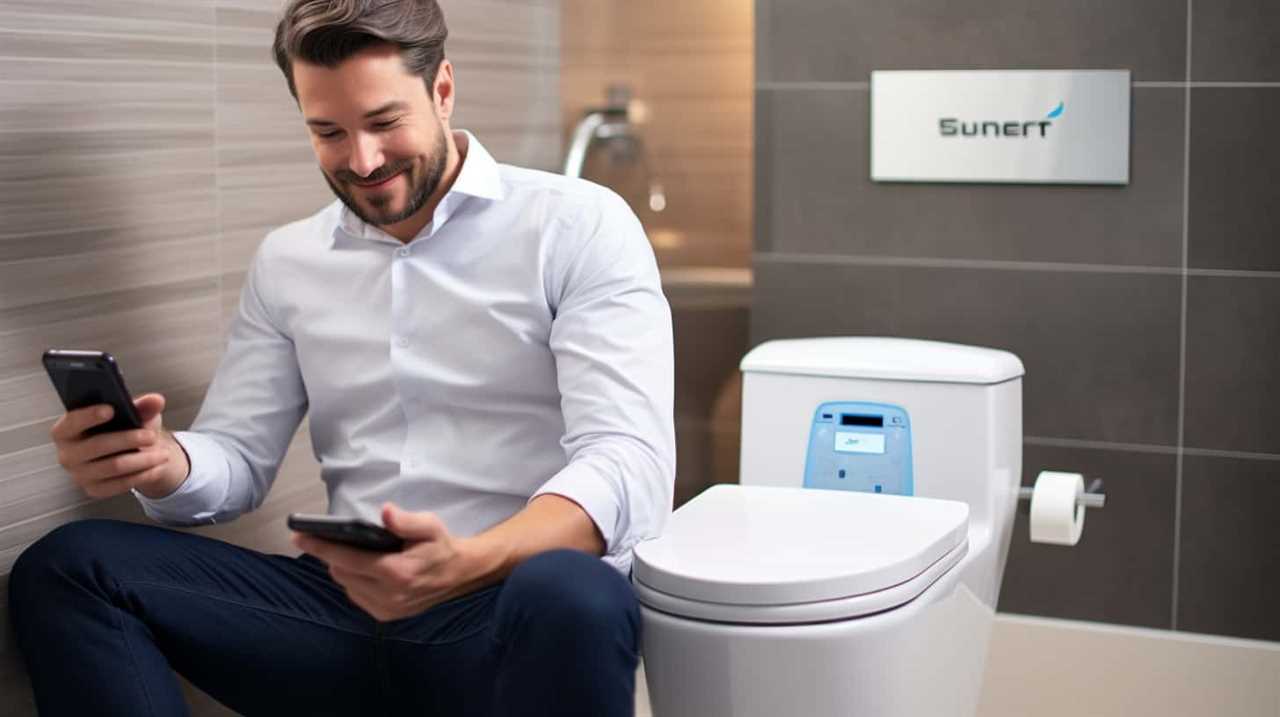
Key Takeaways
- Flushable wipes contribute to clogged sewer systems and can cause costly damages and professional repairs.
- Flushing flushable wipes has significant environmental consequences, including harm to marine life and negative impacts on aquatic ecosystems.
- Alternatives to flushing flushable wipes, such as reusable cloth wipes and biodegradable wipes, can minimize environmental impact.
- Promoting sustainable hygiene practices, educating others about the environmental impact, and supporting legislation can help address the issue of flushing flushable wipes.
The Composition of Flushable Wipes
Flushable wipes are made up of a combination of synthetic and natural fibers. These fibers are manufactured using a complex process that involves blending and intertwining different materials. The synthetic fibers provide strength and durability, while the natural fibers, such as cotton or rayon, offer a softer feel. During the manufacturing process, the fibers are also treated with chemicals to enhance their absorbency and to provide a moisture barrier.
However, despite being marketed as ‘flushable,’ there are health risks associated with using flushable wipes. Studies have shown that these wipes don’t break down easily in water, leading to clogs in sewer systems and septic tanks. Additionally, the chemicals used in the manufacturing process may cause skin irritation and allergic reactions in some individuals.
It’s important to be aware of these risks when considering the use of flushable wipes.
Understanding the Labeling on Flushable Wipes
When it comes to flushable wipes, it’s important for us to understand the labeling on these products in order to make informed decisions about their disposal. The labeling on flushable wipes typically includes information about their biodegradability claims and proper disposal methods. Understanding these labels can help us determine whether the wipes are truly flushable and environmentally friendly.
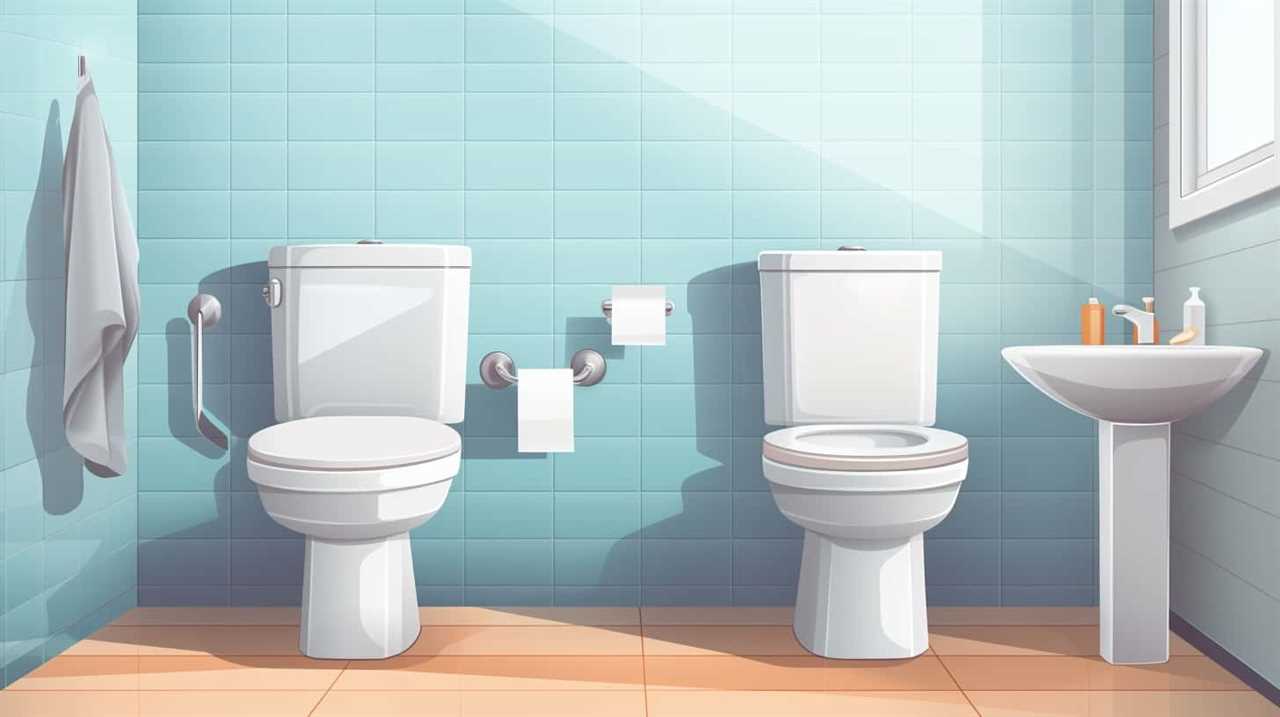
Here is what you need to know:
- Biodegradability claims:
- Look for labels that explicitly state that the wipes are biodegradable.
- Check if the wipes have been tested and certified by independent organizations to ensure their biodegradability.
- Proper disposal methods:
- Follow the instructions on the label for proper disposal.
- Some wipes may need to be discarded in the trash instead of being flushed.
The Impact of Flushable Wipes on Plumbing Systems
The improper disposal of flushable wipes can have a significant impact on our plumbing systems. Not only do flushable wipes contribute to clogged sewer systems, but they also result in costly damages that require professional repairs.
The cost of repairing plumbing damage caused by flushable wipes can be substantial, as these wipes don’t break down like toilet paper and can accumulate over time, leading to blockages in pipes and drains.
Additionally, clogged sewer systems caused by flushable wipes pose public health risks. When sewage backs up due to blockages, it can contaminate water sources, leading to the spread of harmful bacteria and viruses.
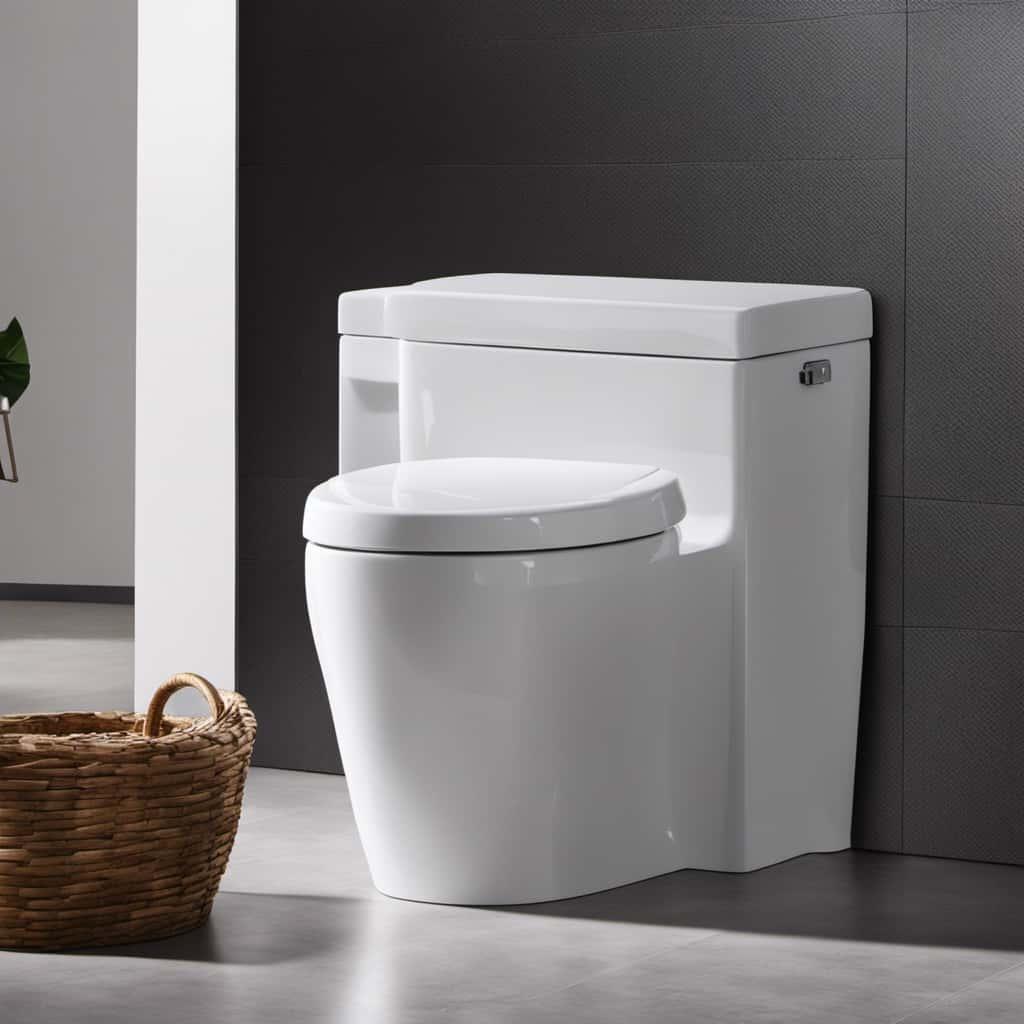
Therefore, it’s crucial to properly dispose of flushable wipes in the trash to prevent these costly plumbing damages and protect our public health.
Environmental Concerns Surrounding Flushable Wipes
One significant concern surrounding flushable wipes is their environmental impact. When it comes to disposal methods, flushing them down the toilet may seem convenient, but it can have detrimental effects on our environment.
Here are two sub-lists illustrating the potential consequences:
- Wastewater Treatment:
- Flushable wipes don’t break down easily, leading to clogged pipes and sewer systems.
- They can also cause blockages in wastewater treatment plants, resulting in costly repairs and increased energy consumption.
- Marine Life and Ecosystems:
- Flushable wipes that make their way into rivers and oceans can harm marine life through ingestion or entanglement.
- The chemicals used in these wipes can also have negative impacts on aquatic ecosystems.
Considering these environmental concerns, it’s essential to explore alternatives to flushing flushable wipes that are more sustainable and responsible.

Alternatives to Flushing Flushable Wipes
Instead of flushing flushable wipes down the toilet, we can consider using alternative disposal methods. Not only is flushing these wipes harmful to the environment, but it can also lead to costly plumbing issues. To help you make a more environmentally friendly choice, here are some alternatives to consider:
| Alternative | Benefits |
|---|---|
| Reusable cloth wipes | – Reduce waste and save money |
| Biodegradable wipes | – Break down naturally, minimizing environmental impact |
| Toilet paper | – Designed to disintegrate quickly in water |
Reusable cloth wipes are an excellent choice as they are gentle on the skin, cost-effective, and can be used repeatedly. They can easily be washed and reused, reducing waste and environmental impact. Biodegradable wipes are another option, as they are made from materials that break down naturally over time. Lastly, using toilet paper is a more traditional and readily available option that is specifically designed to disintegrate quickly in water. By opting for these alternatives, we can make a positive impact on the environment while maintaining personal hygiene.
Frequently Asked Questions
How Often Should I Flush Flushable Wipes Down the Toilet?
We should avoid flushing flushable wipes down the toilet frequently. Doing so can lead to clogged pipes and sewage backups, impacting toilet hygiene. Moreover, these wipes can harm the environment by contributing to pollution and water contamination.
Are Flushable Wipes Safe to Use on Sensitive Skin?
Flushable wipes can be safe for sensitive skin, but it’s important to consider potential allergies. They offer benefits like thorough cleansing and convenience. However, always follow product instructions and dispose of them properly to avoid plumbing issues.

Can Flushable Wipes Cause Clogs in Plumbing Systems?
Flushable wipes, despite their name, can actually cause clogs in plumbing systems. It is important to properly dispose of these wipes to avoid environmental impact. Flushing them down the toilet is not recommended.
Are There Any Regulations or Standards for Labeling Flushable Wipes?
There are regulations and labeling standards for flushable wipes. These guidelines ensure that the wipes are safe to flush and won’t cause plumbing issues. Compliance with these standards is essential to maintain proper wastewater management.
What Are the Most Common Alternatives to Flushing Flushable Wipes?
We’ve found that there are plenty of eco-friendly options and biodegradable alternatives to flushing flushable wipes. Let’s explore some of the most common choices that are better for the environment and your plumbing.
Conclusion
In conclusion, the allure of flushable wipes may seem convenient, but their impact on plumbing systems and the environment can’t be ignored. Symbolically, they represent a hidden danger lurking beneath the surface.
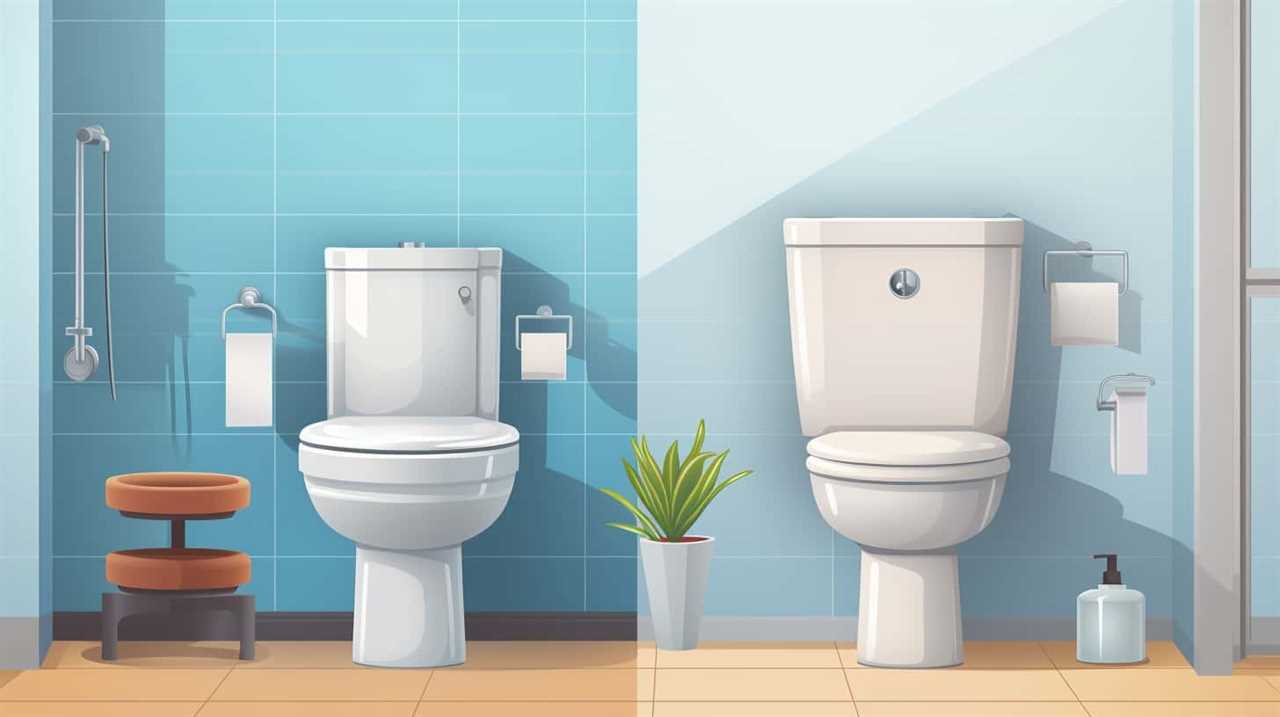
With their non-biodegradable composition and potential to clog pipes, it’s best to seek alternatives to flushing them.
Let’s strive for a more sustainable future, where we make informed choices that protect our plumbing systems and the planet.
